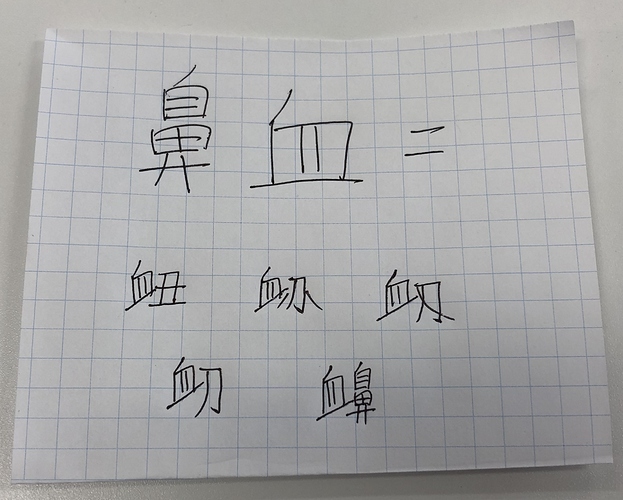俺は7月にセカオワのライブを見に行く!超楽しみにしてるわ!
京都がどこかを知っていますか。
できる日本語という教科書がどこ買うかを知っていますか。
Summary
Do you know where Kyoto is?
Do you know where can I buy Dekiru nihongo the textbook?
今日、私たちはサウスカロライナへ行きます!
Summary
We’re going to South Carolina today!
どこで「できる日本語」という教科書を買えるか知っていますか。
It would probably be better to use the potential form in this case because you’re asking ‘where can I?’ and not ‘where will I?’
You are probably right, I just haven’t gotten to potential form on BP yet, so I wouldn’t know. ^^
What does どこで do? Versus just どこ?
The で shows that you are doing an action at the location.
どこで勉強していますか。
どこにいますか。
With the second sentence you’re not actually performing an action so に is more appropriate
So in Japanese, you’d ask at what place (どこで) can I buy X rather than where (どこ) can I buy X?
As far as I’m aware you will always need a particle after どこ to indicate where the sentence is going: どこに、どこで、どこへ 、どこから、どこまで etc. In the example of ‘where can I buy…?’ the ‘buy’ is a physical action so it will always have で.
どこで doesn’t mean ‘at what place’, で is separate so it still means ‘where can i…’ but the で indicates how the sentence will end, i.e. preforming an action (in this case to buy).
This is probably the worst explanation in the world but I hope you can understand it.
Except どこ can take just です without a particle and I guess I’ve seen that use so much I hadn’t realized どこ needs a particle.
I get what you mean. I kinda put it as “at what place” because で means you aren’t exactly asking for direction, but more for the place you can perform an action, (at least that is my understand of the particle) and a more exact English translation would be “at what place” in that case. Even though どこで would still just be translated as “where” because in English どこに and どこで can both be covered by “where”. That is my understanding, but maybe that isn’t correct…
I see what you mean and yes you’re correct. です is a sentence ending particle. As far as I’m aware, the only way どこ wouldn’t have a particle is if it is the last word in a casual sentence, for example 今どこ? and even then you could argue that the question mark acts as a sentence ending particle.
OK here are my sentences. Please correct me!
夕べ俺の常連の居酒屋の友達3人の卒業パーティーに行ってきた。居酒屋は昨日一般に公開じゃなかったけどいろんな常連客や先の店員などが誘われた。3000円の食べ飲み放題だったから俺が嬉しかったと言うまでもない。笑
みんなが酔ってから思い出の映画が見せられて、卒業した店員3人はスピーチをした。俺が泣きすぎたけどすっごく楽しんだ。
片付けの後で俺は帰って寝た。今日は腹がちょっと痛いけど本当にいい思い出を作れたぞ~
夕べ、俺が常連になっている居酒屋の友達3人の卒業パーティーに行ってきた。居酒屋は貸切で、いろんな常連客や昔の店員が集まった。3000円の食べ飲み放題だったから、俺が嬉しかったことは言うまでもない。笑
みんなが酔ってから、思い出のムービーを見せられて、卒業した店員3人はスピーチをした。俺は泣きすぎてしまったけど、めっちゃ楽しかった。
片付けの後で俺は帰って寝た。今日は腹がちょっと痛いけど、本当にいい思い出を作れた!
サンキュー!
I really need to work on my accuracy haha
アフリカに行かない方がいいです。
南アフリカに行ったことがない。
韓国語の勉強したことがありません。
English
It would be better not to go to Africa.
I have never been to South Africa.
I have never studied Korean.
Comments
I only meant to write the second and third sentence. I have made a list of grammar points in English that I want to practice. So I started writing the first sentence and then wanted to double check my work and realized I’d used the wrong grammar point. Doh.
Perfect.
韓国語の勉強したことがありません
Should be:
韓国語の勉強をしたことがありません or 韓国語を勉強したことがありません。
Dang. My iTalki tutor dinged me on this like twice too. I need to remember that I need an を no matter what. Just because I can move it around doesn’t mean I can skip it… I hope I remember after this! 
俺は漢字オタクだから今日「鼻血」って意味の漢字を5つ見つけた。それぞれの漢字の違いは全然わかんないけど。超珍しい漢字だからインターネットでも調べにくかった。でも俺のでかい字典には書いてある.
笑笑
Very good 
俺も韓国語を勉強したことないけど1週間後ソウルに遊びに行くんだから挨拶とかを学ばなきゃ!
Thanks! That’s my new challenge - to find a Japanese person who’s actually heard of these! 


